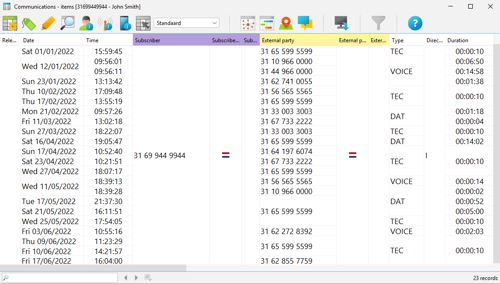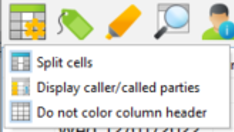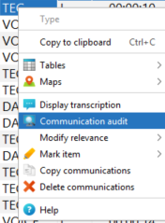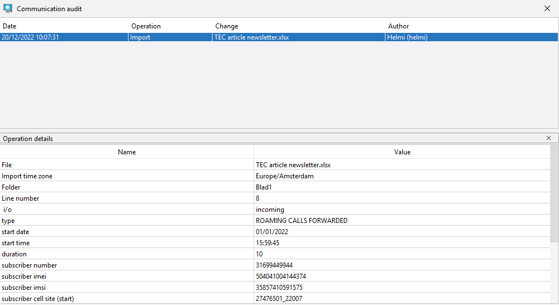Mercure Tips & Tricks: TEC communication
Mercure is ideally suited for analysing telecom data, location data and number plate data, among others. While performing telecom analyses in Mercure, you may encounter a communication type of the ‘TEC’ category. This article will tell you what this communication type entails and how to deal with it.
Communication types
When importing call data from a person or when importing mast dumps, the different communication types are converted to communication types known within Mercure. The conversion of these communication types is defined in the import specifications developed for each provider. In most cases, the types of communications handled by different providers can be classified as a call, SMS, data traffic or voicemail. For example, during import, data traffic is converted to DAT and voicemail to VMAIL.
If Mercure cannot classify a communication rule from the provider's overview as a type known within Mercure, it will be referred to as TEC (which stands for Technical Communication). Mercure itself will not 'guess' under which communication type the rule may fall, and so a general communication type has been established.

TEC
To perform a full analysis, it is important to find out which communications are classified as TEC. You have the ability to find out what the original value was in the provider's export file. For this, you can use the audit function in Mercure. You proceed as follows:
1. Open the claim.
2. Split the cells when they are merged, as in the example above (icon at the top left).

3. Go to the communication line where TEC is and right-click on it.
4. Go to the option “Audit of communication”.

5. In the overview you get, you can find more information about the communication line.
The example below shows that the original value is marked as 'roaming calls forwarded'.

If the information retrieved from the audit window within Mercure does not provide sufficient insight into what exactly the communication type is, it is advisable to request more information from the relevant provider.
Contact us
If it turns out that a communication type can be classified under an already existing communication type or if you would like a new type to be created, please contact our support department.